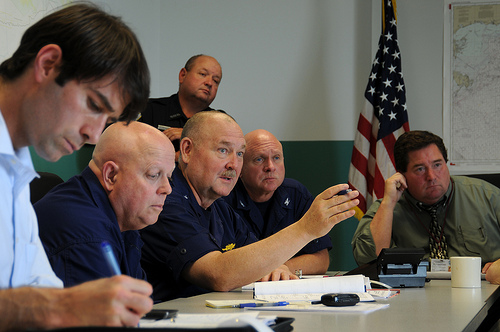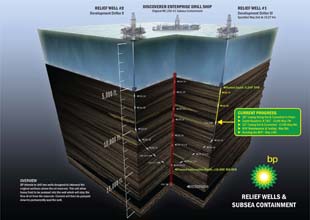
Photo by uscgd8, <a href="http://www.flickr.com/photos/uscgd8/4576217753/">via Flickr</a>.
The federal government has so far left it up to BP to fix the well spewing into the Gulf of Mexico. But if BP‘s latest plan to stop the gushing Gulf well fails, the government may be obligated to take control of the situation, according to federal law.
The Oil Pollution Act of 1990, passed in the wake of the Exxon Valdez disaster, amends a portion of the Clean Water Act to not only allow but require the federal government to take over if discharge from a “vessel, offshore facility, or onshore facility” is determined to be “of such a size or character as to be a substantial threat to the public health or welfare of the United States.” (I’m pretty sure the Gulf disaster more than qualifies as such at this point.)
“The President shall direct all Federal, State, and private actions to remove the discharge or to mitigate or prevent the threat of the discharge,” the law states. It continues that the president may “remove and, if necessary, destroy a vessel discharging, or threatening to discharge, by whatever means are available.”
David Pettit has more over on the Natural Resources Defense Council blog. Furthermore, he writes, under the National Contingency Plan developed by the EPA, the head of the Homeland Security Department is directed to appoint a federal incident commander charged with carrying out this obligation. In this case, the DHS head Janet Napolitano has appointed Coast Guard Commandant Adm. Thad Allen (yes, the same guy who maintains that he still trusts BP to fix the issue).
The federal government wants to keep this ball in BP’s court in hopes of minimizing the political implications for the administration should efforts to cap the well continue to fail. But it’s clear that they have a legal, if not moral, obligation to do more.






